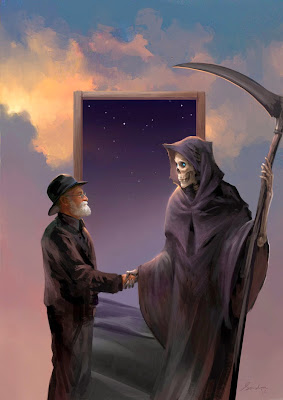“Lovers of print are simply confusing the plate for the food.” ― Douglas Adams
To many of us who love books, the printing press may be the greatest scientific achievement of all time. I mean, sure, without fire we wouldn’t have pizza and without the wheel there wouldn’t be a way to deliver pizza, but what is the point of a piping hot one with extra cheese if I don’t have a book to read while I absently shove slices in my mouth? Ok, that’s it with the pizza references, but the point of this is to say that people really, really, really love printed books.
And why wouldn’t they? First of all, it’s been around for a long time. It’s how we define books. It’s how our grandparents defined books. It’s how THEIR grandparents defined books, meandering back to the 1400s. Printed books are there in our bones, because they haven’t really changed in so long. We didn’t have any problem going from vinyl records, to cassettes, to CDs, to MP3, and that happened within a couple of generations. Nor do we yearn for when watching a movie at home meant lugging out the VCR and running to the video library three blocks away for a video tape that was just as likely to get wrapped up in the inner workings of the player as it was to provide an evening’s entertainment. Our music is digital, our movies are digital, our games are digital, so why do so many intelligent, reasonable people begin frothing at the mouth when the discussion turns to our books being digital?
Because they’re not wrong. There’s something about holding a book, about running ones fingers across the spine, about opening up a random page and glancing over the words. We don’t just read books. We feel books, and smell books, and touch books and sometimes, if the books are called 50 Shades of Gray, we throw books across the room in rage, but that’s neither here nor there. Books are warm and colourful and voluminous (literally). A stacked bookshelf, ceiling high, is a better adornment for any room than the world’s most expensive wallpaper. When choosing between digital and printed, the battle always comes down to aesthetics vs. practicality. And that’s the point of this post. To discover and discuss the aesthetic joys of digital.
It’s wise to remember that even the printing press was created out of a need for practicality. Books were the best way to codify and spread knowledge and information, but it was impossible to do that with the gigantic handwritten volumes of the day. The point was to speed up the process of making copies, not provide aesthetic joys. That came later, and it came because the size, shape and feel of a book became associated with memories. Practicality followed aesthetic pleasure. Hell, I bet someone complained when this newfangled thing called paper came in and made the “carvings on stone slabs” technology obsolete. This is what makes me sure that readers a few generations henceforth will find things to love about ereaders and digital books just the way we love printed volumes. The question is, what will they love?
Will they love the fact that going on vacation doesn’t mean having to choose only five of the fifteen or so books they will be reading over the next few weeks? Will they be thrilled by the way the ebook reader glows in the night…a luminous square of literature in the dark, and the rest of the world forgotten? Or will they delight in the fact that no book will go out of print. Ever. Will they appreciate how wondrous it is that ancient philosophical texts and the latest prize winning fiction is available to them instantly? I do. It’s a thrill, a tingle in the base of my spine that I can only call an aesthetic pleasure. One that goes beyond the realm of the physical object and is almost, dare I say, magical? Yes, I recognize the aesthetic pleasures of a printed book. It’s why I have hundreds and celebrate the book fair as my own personal Christmas. But I also derive a different kind of aesthetic pleasure from a digital book. Fittingly, this is based on less tangible things, and more virtual, but it’s aesthetic no doubt, going beyond the realm of the words on the glowing screen. It’s the pleasure of more worlds to explore, more ideas to discover and more things to learn than I ever could, if I just stuck one way of thinking. Besides, printed books are not going away anytime soon, if ever. After all, we’ll always have 50 shades, and throwing my Kindle across the room get’s real expensive, real quick.



























